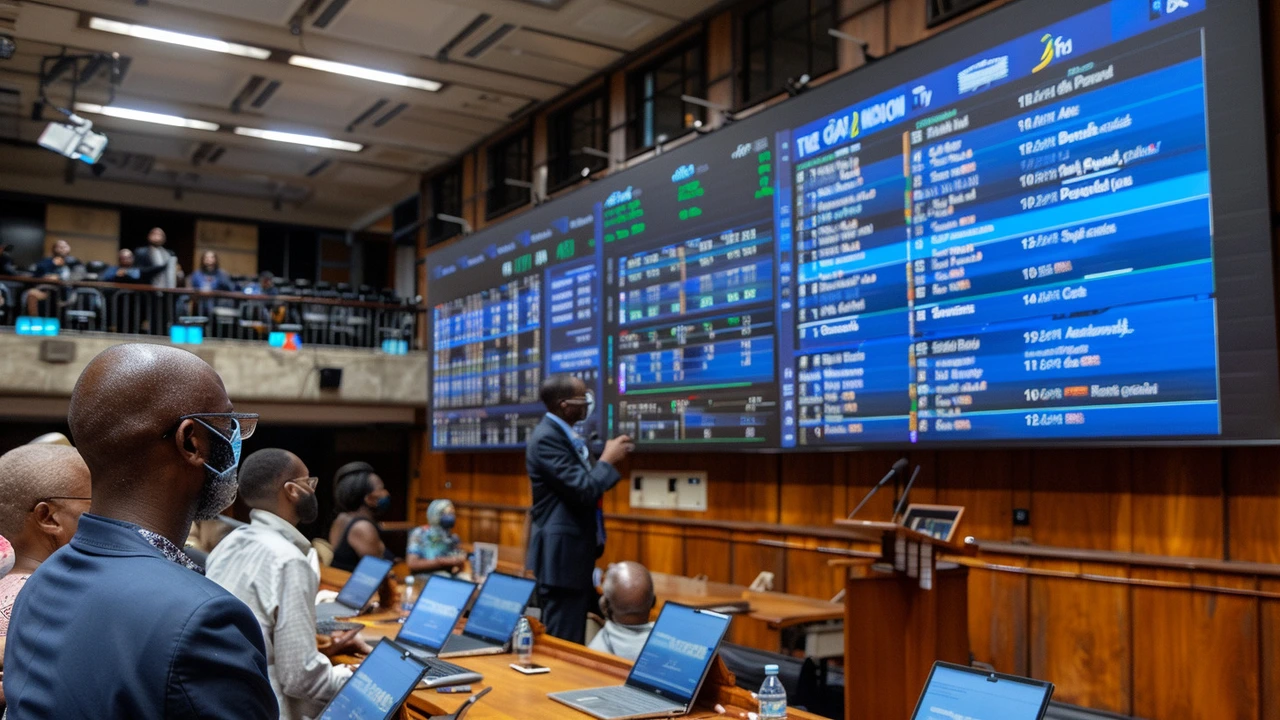In the landscape of South African politics, the atmosphere is one of significant unease and anticipation. There’s a growing discontent among the populace, bringing about whispers of change and shifting political alliances. The country is gearing up for what may be its most competitive election since the end of apartheid in 1994. This sense of change brewing is palpable as frustrations with the ruling African National Congress (ANC) brew beneath the surface.
The ANC, which has been the ruling party for decades, is now under immense scrutiny from numerous quarters. The throes of corruption, economic stagnation, and the pervasive unemployment problem have led to an erosion of support. It’s these elements of dissatisfaction that have left room for opposition parties to make significant inroads on the political stage. Parties such as the Democratic Alliance (DA) and the Economic Freedom Fighters (EFF) are beginning to capitalize on the ANC’s perceived weaknesses, aiming to reshape the country’s future.
Corruption within the ANC has been a pervasive issue, one that has significantly tainted the party’s reputation in the eyes of many South Africans. Numerous scandals over the years have left the public questioning the integrity and effectiveness of the leadership. From misallocated funds to alleged graft and bribery involving high-ranking officials, these instances have eroded the once robust support base. In turn, this has bolstered the opposition's claims of a need for change and reform.
One of the watershed moments in this decline was the resignation of Jacob Zuma in 2018 amid numerous allegations of corruption. The subsequent administration of Cyril Ramaphosa promised a crackdown on corruption and greater transparency. Nevertheless, public sentiment remains skeptical, with many questioning the legitimacy of the promises made and the actual progress achieved. These lingering doubts form fertile ground for the opposition’s campaigning, pinpointing the ANC’s shortcomings as focal points.
Economically, South Africa has been struggling. The nation’s economic growth rate has been sluggish, creating a landscape of stagnation that further compounds the frustrations of its citizens. High levels of unemployment have only exacerbated this situation, creating a sense of hopelessness and disenfranchisement. The youth, in particular, finds themselves at the juncture of limited opportunities and a dire future outlook. These economic challenges are central to the discontent that the ANC faces.
The inability of the ruling party to construct effective policies to combat unemployment and spur economic growth has been a significant factor in the loss of support. People are looking for tangible results and change, desperate for a shift that will bring about positive outcomes. The opposition seizes upon these gaps, highlighting their plans for job creation, economic rejuvenation, and better governance structures aimed at alleviating systemic issues.
The DA and EFF are emerging as substantial contenders in the upcoming elections. The DA, known for its principles of good governance and liberal market policies, presents itself as a viable alternative to what they term as “ANC's mismanagement.” Their commitment to transparency and economic reform resonates with the electorate’s current mood of desiring accountability and change.
On the other hand, the EFF channels the frustration of the masses through a more radical approach. Their rhetoric is unabashedly direct, calling for the nationalization of major industries and land redistribution without compensation. These bold stances mirror the intensity of public frustration and resonate deeply with a segment of the population disillusioned with the slow pace of reform and the endemic corruption within the ANC.

This electoral battle is poised to be one of the most competitive in South Africa’s recent history. The dynamics at play hint at a significant shift, reflective of one of the most profound changes since the end of apartheid. The ANC, once unassailable, is now facing real prospects of losing its dominant position. While it remains entrenched in many communities, the tides of change are pulling at its foundations.
Local elections and by-elections have shown that support for the ANC is waning, presenting fragmented results that hint at a more balanced, multi-party future. The competitive nature of these elections is a microcosm of the coming national battle, featuring neighborhoods and cities flipping from ANC control to the opposition.
These developments suggest a fascinating and crucial election ahead, one with potential to redefine South Africa's political landscape. It will be a battle characterized by the boiling frustrations of a people yearning for change and a political establishment fighting to maintain its legacy and power. This election stands as a testament to the evolution of democracy in South Africa, and eyes around the world will undoubtedly be watching closely.
Undoubtedly, the road ahead to the election will be fraught with intense debates, dramatic claims, and deeply rooted public emotion. As campaigns ramp up, the air is thick with anticipation and the promise of change. Both the ANC and the opposition parties are poised for a grueling campaign trail, each with their own narratives and visions for South Africa.
The citizens of South Africa stand at a crossroads, their choice holding the power to either transform the nation’s political landscape or reaffirm their trust in the ruling party to lead them out of their current challenges. This democratic exercise is an important reminder of the power of the people and the importance of their voice in shaping the future of their country.
Write a comment